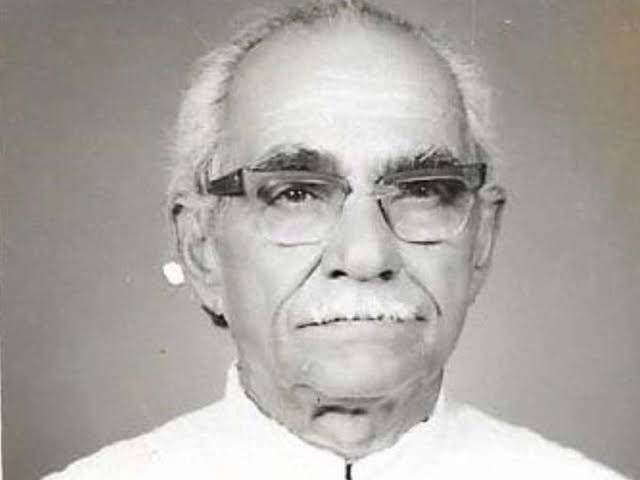Though the origin of Jai Hind is usually ascribed to Chempakaraman Pillai in 1907, it didn’t have a popular usage till Netaji Bose made it the standard greeting of the INA. How this happened to be has a Hyderabad connection.
It is believed by Netaji’s close followers that the slogan "Jai Hind" as coined by Abid Hasan Safrani.
Abid Hasan Safrani was the son of the soil of Hyderabad in India. His real name was Zainul Abedin Hasan. He preferred to be called Abid Hasan. His parents expired during the British Raj. Before that they had sent him to Germany instead of England for higher studies in Engineering stream. During the that time, Netaji Subhas Chandra Bose visited Germany and addressed Indian prisoners of war & also students and asked them to join Indian National Army (Azad Hind Fauj). Abid Hasan met him and got inspired by the charisma of Netaji. He told him that he would join him after finishing his studies. Netaji said tautingly that if he was caught in such small considerations, he would not be able to achieve anything big in life. This remark inspired him. He instantly decided to give up his studies and complied to the call of Netaji. He became his secretary and interpreter. He was upgraded to the rank of a Major in INA.
Integration of the soldiers was a burning issue to Netaji. He saw that each community greeted each other with their own salutation. The Hindu soldiers said, Namaste, Ram Ram, the Muslims said Assalamo-laikum and the Sikhs said Sat Sri Akaal. Netaji decided to replace these religion based greetings with a common salutation & this task was entrusted to his brilliant aide Abid Hasan. Once he overheard two Rajputs greeting each other Jai Ramji ki. That thing triggered off his imagination & the Idea of "Jai Hindustan Ki" was born. This in turn, led to the shorter form "Jai Hind" (Hail India).
Netaji was delighted with Hasan's idea. Finally he adopted it as the formal manner of greeting for members of INA. Subsequently it became the national patriotic salutation in independent India. On the midnight of independence day, Nehru used it in his speech addressed to the nation. The renowned researcher and writer Leonard Gordon in his book "Brothers against the Raj" has specifically mentioned that Jai Hind has been coined by Abid Hasan Safrani. In order to uplift the communal harmony, he adopted his title to 'Safrani ' after the holy Hindu colour.
Some interesting facts may also be added here that when Netaji made his historic escape from Germany to Japan by submarine in 1943, he took Hasan along with him. It was the longest submarine voyage in history till then.
In a movie on this voyage, Shyam Benegal portrayed the "The forgotten Hero", Rajit Kapoor played the role of Hasan. In August 1945, Hasan was one of the key aides whom Netaji picked to accompany him on his final flight along with S A Aiyer, Colonel Habibur Rahman, Colonel Gulzar Singh and Debnath Das. The plan was to fly together from Singapore to Tokyo via Bangkok, Saigon, Taipei and Manchuri. But at Saigon Netaji suddenly asked Hasan to remain behind to finish some work and meet up with him in Tokyo.
Netaji took off in a Japanese Mistubishi Ki 21 bomber accompanied only by Rahman. The story thereafterwards doesn't require to be elaborated here.
At the end of world war II, Hasan was imprisioned by the British. After trials he was repatriated to India in 1946. He joined the INC.
After independence, he joined the newly formed Indian Foreign Service.
However, he served as an ambassador to a number of foreign countries. Netaji 's nephew Aurobindo Bose had married Safrani's niece Suriya Hasan. Abid Hasan's father Badrul Hasan was one of the great freedom fighters. He worked with Gandhiji. Abid Hasan Safrani died on 05.04.1980. Salutations to Abid Hasan.
JAI HIND.
Adm(R) Vishnu Bhagwat



Comments
Post a Comment